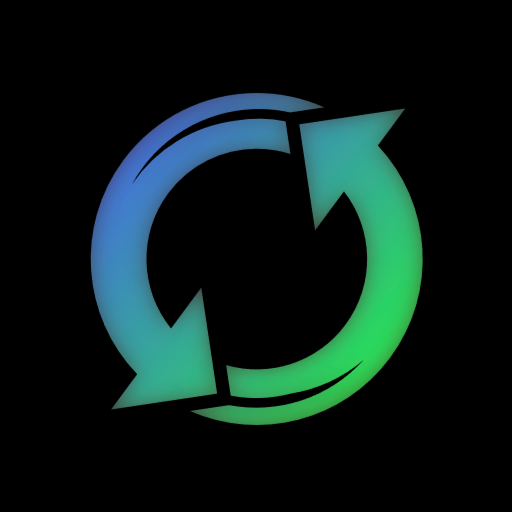Thanks for asking the question. Apparently I need to check out opensuse!
- 3 Posts
- 111 Comments

 1·1 month ago
1·1 month agoFor debugging across disparate app, hosts, etc.,x I think the best current option is spans and traces. If you aren’t already familiar, look into general observability, logs/metrics/traces, and definitely opentelemetry!

 76·1 month ago
76·1 month agoWait. Who’s genocidal here?

 22·1 month ago
22·1 month agoUnfortunately, I’m not familiar with installing Bitwarden so I can only offer general advice.
Port conflicts happen at runtime, not when software is installed. In general, you should be able to install as much software as you’d like that all relies on port 443 but only run one at a time.
If you’re seeing port conflicts when installing Bitwarden, then I suspect that something is starting the app after the install is done. If this is right, then maybe you can disable the automatic start. Or maybe you can ignore the error at install time, then configure the app, then start it.

 59·1 month ago
59·1 month agoOpen source software literally means that the source code is available to anyone. In GitHub, that just means that your repo is public rather than private. But your method technically doesn’t matter. You could publish to a forum if you wish. That’s still open source!
Free OSS just means that anyone is free to use and modify the source code for any purpose. The details are usually defined in a LICENSE file.
I feel like you’re really asking about the common practices and methods used in FOSS. Right? If so, that’s entirely up to you as the maintainer. As the project matures, you may attract other contributors which will in turn will motivate change to your tools and methods.
Start with what works for you. Model after similar projects if you wish. Adjust as change is needed.

 4·1 month ago
4·1 month agoI certainly don’t have an answer for you. Sorry 🙂
I’m super curious about your motives and goals though. Why do you want to do this??

 4·2 months ago
4·2 months agolol got it. Definitely not email then

 3·2 months ago
3·2 months agoUh email? It’s not exactly exciting but there are loads of tools available for automating emails. Definitely asynchronous. Does it fit your needs?

 7·3 months ago
7·3 months agoUnfortunately, I don’t remember the source so we may need to go digging. But I recall reading that something like 1/3 of all bugs are related to memory safety. And those bugs translate to things like buffer overflow and privilege escalation attacks.
The proclaimed advantage is that by making the entirety of Rust memory safe, that entire class of bugs simply won’t exist for projects written in Rust. When they do happen, the bugs will be addressed by the language rather than many thousands of downstream projects. It should be an enormous gain in development performance for the world.
I think the idea makes sense. Time will tell us how well that works.

 201·3 months ago
201·3 months agoStrange. I’m not exactly keeping track. But isn’t the current going in just the opposite direction? Seems like tons of utilities are being rewritten in Rust to avoid memory safety bugs

 1·3 months ago
1·3 months agoProfessionally, I’ve spent the last year almost entirely focused on o11y, a numeronym for observability. IMO you want to run opentelemetry (aka otel) for a lot of this stuff. It’s a fantastic tool. We tell clients that if they don’t use otel, then they’re probably doing o11y wrong.
You can run it as a collector to scrape log files. If your apps are instrumented, they can emit telemetry via OTLP to otel instead. Then otel can process and export the data to various data backends like Minor (metrics), Loki (logs), and Tempo (traces). Then use Grafana for a UI. That particular set of tools is known as the LGTM stack. if you only want to handle logs, your stack could be simpler: otel, Loki, and Grafana.
A final thought is about a seeming want for metrics generated from logs. Otel can do that for you too.
Well this confuses me. I’m only aware of upvotes and downvotes. What do the 4 colors mean? And what do the left and right arrows mean? Arrow size?
Well that’s an interesting take! What aspects are you opposed to?
IANAL but I did read through the patents agreement that you linked. It basically says do whatever you want with Go as long as it different infringe on Google patents. Which is pretty much backed by US law anyways and I assume other countries as well. The sketchy part is that your license is revoked as soon as they file a lawsuit rather than win it. Honestly, I’d be surprised if Google ever used this in a legal dispute because there would be a huge community backlash.
That also only applies to Go developers. You would only be a user for a tool written on Go. How does your using a tool written in Go translate to support for Google and its bad practices? Do you not use any software written in Go?
Sorry if this is sounding argumentative! I’m generally a big fan of Go and definitely opposed to Google and using its products. This is a topic that I haven’t considered before so my questions represent my sincere curiosity.
The admins just launched a bunch of new services, including Blocks. I’m not sure if it checks all of your boxes. But it’s an obvious choice to look into

 2·4 months ago
2·4 months agoTST = Tree Style Tabs STG = Simple Tab Groups

 5·4 months ago
5·4 months agoSidebery provides this functionality as well. Don’t get me wrong. If you like TST and STG, then enjoy!

 5·4 months ago
5·4 months agoSidebery And userchrome.css to hide the default tab bar

 51·4 months ago
51·4 months agoGotta check out Sidebery. It’s a big upgrade from TST

 23·4 months ago
23·4 months agoHead nod regarding the ranked choice voting




Visibility
It’s easy to understand how income and taxes affect my life. For many jobs, it’s very difficult to understand the value of my labor in a bigger picture.
I think most people can’t think abstractly and thus struggle to see larger interactions like how money flows through an economy.